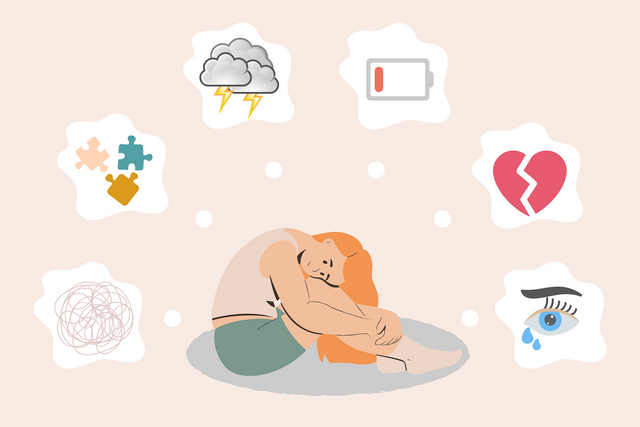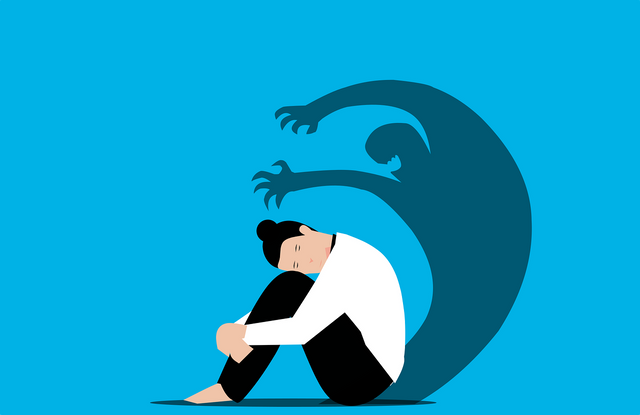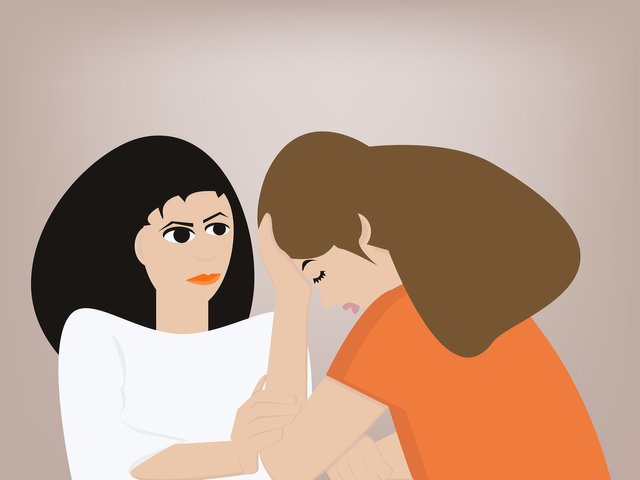Steemit Health Contest #11: Understanding Mental Health Care and How I Manage Mine.
What do you know about mental health?
The Basics of Mental Health
Mental health affects us all – understand it better by discovering everything there is to know with this post's helpful guide.
Mental health is an important part of overall well-being and is essential for living a full, balanced life. Learning about mental health can help us recognize signs and symptoms in ourselves or our loved ones to get the help we need. Read on to discover more about mental health and its many facets.
What is Mental Health?
Psychological well-being alludes to our profound, mental, and social prosperity. It influences our thought processes, feelings, and actions. It additionally decides how we handle pressure, connect with others, and simply decide. Mental health is a continually evolving state that can be impacted by both internal and external factors such as life experiences, genetics, biology, disorders, or illness.
The Causes of Poor Mental Health
Poor mental health can be caused by many factors, including biological and environmental influences. Biological factors include genetic makeup, mental health conditions, and instability in brain chemistry or hormones. Environmental influences can include traumatic events, physical or verbal abuse, neglect, abandonment, or other negative experiences. It can also be due to life transitions such as marriage, pregnancy, and changes in job or school.
Common Types of Mental Illness
Mental illnesses are conditions that impact the way an individual thinks, feels, and behaves. These disorders can interfere with their ability to lead a healthy, normal life. Common types of mental illness include anxiety disorders, depression, bipolar disorder, schizophrenia, eating disorders, and more. Each of these conditions requires different treatment depending on its severity and the individual’s needs. It’s important to know the symptoms and seek help if needed to maintain a good mental health state.
Warning Signs to Look Out For
One of the most important aspects of understanding mental health is recognizing warning signs that indicate a person may have a mental illness. Some common warning signs include difficulty regulating emotions, withdrawal from social activities and people, persistently depressed mood or loss of interest in activities, and drastic changes in behavior. If you know someone who is displaying any of these signs it’s important to check in with them and recommend they seek professional help if needed.
How to Support Those Affected By Mental Illness
Supporting someone who may have a mental illness starts with being able to recognize the signs of mental illness, and then having the courage to extend compassion and provide help. It’s important to allow an affected individual to express their feelings without judgment, listen actively without trying to fix their problems, ask how you can help them, provide whatever practical assistance they may need, and encourage them to seek professional help if they're comfortable doing so. Remember that support can make all the difference in helping individuals living with a mental illness feel heard and understood.
What causes mental health disorders?
Understanding and Overcoming the Challenges of Mental Health Disorders
Mental health disorders can affect us in many ways, but they do not have to define us. Unlock tools and strategies to cope with mental health challenges and gain a new outlook on life.
Mental health disorders can be difficult and overwhelming to manage, but with the right strategies and help, you can find ways to cope with them. Learn about different tools you can use to deal with mental health challenges, such as medication, self-care activities, therapy, and more.
What is Mental Health Disorders?
Mental health disorders refer to a range of conditions that can impact emotions, behaviors, and thoughts. Some of the most common types of mental health disorders include depression, anxiety, bipolar disorder, post-traumatic stress disorder (PTSD), schizophrenia, obsessive-compulsive disorder (OCD), eating disorders, and sleep disorders. It’s important to understand the symptoms and impacts of each disorder to identify it in yourself or a loved one and access the necessary support.
Identifying Signs and Symptoms of Mental Health Disorders.
It’s important to know the signs and symptoms of mental health disorders to seek help or support someone who is struggling. The most common signs and symptoms of mental illness include excessive worrying, sleep disturbances, changes in appetite and weight, extreme mood swings or irritability, difficulty concentrating, feeling sad or hopeless, loss of interest in activities one once enjoyed, low energy levels, isolation from family and friends, reckless behavior.
Building Coping Strategies & Skills.
Coping strategies are important to help us manage our emotions and situations in healthy ways. Examples include deep breathing, meditation, mindfulness practices, exercise, journaling, connecting with nature, relaxation techniques, and reaching out for support. Coping skills also need to be tailored to the individual and their goals; what works for one person might not work for another. Additionally, it’s important to build a strong sense of self-compassion and acceptance to respond positively to uncomfortable feelings or scenarios rather than trying to “avoid” them.
Professional Treatment and Support Options are Available.
Professional mental health treatment can be invaluable in providing supportive, evidence-based strategies to help address mental health challenges. Treatment options like therapy and medications may be beneficial and necessary for some to create a plan that works best for their unique needs. Furthermore, many professional services work hand-in-hand with self-care practices and support systems for those struggling with mental health issues. In addition to therapy and medications, resources such as group therapy and community organizations are available to help provide additional social support.
How do you manage your mental health?
My 5 Strategies to Maintain Positive Mental Health
Mental health is essential for living a happy, balanced life. Learn five strategies to maintain positive mental health, from mindfulness meditation to cognitive therapy.
Maintaining good mental health is essential for living a happy, balanced life. From mindfulness meditation to cognitive therapy, here are five strategies to help you manage your mental health and stay positive.
Engage in Mindfulness Meditation.
Mindfulness meditation is the practice of focusing on awareness of the present moment without judgment. It encourages individuals to be aware of their thoughts and emotions and respond rather than react to them. Regular mindfulness meditation has been shown to reduce stress, anxiety, and depression, as well as improve overall physical health. Additionally, it can help decrease rumination, which is when you replay negative experiences or past emotions in your mind.
Practice Cognitive Therapy Techniques.
Cognitive therapy techniques are a form of psychotherapy that focuses on changing unhelpful thought patterns or beliefs. By actively challenging thoughts, people can learn to modify their ideas to become more positive and supportive. Similarly, individuals can learn to observe their thoughts without judgment and identify whether they are based on reality or distortions of the truth. This practice helps individuals to differentiate between situations within their control and those outside of it. Practicing cognitive therapy techniques can help individuals better manage stress as well as anxiety and depressive symptoms.
Get Sufficient Rest and Work-out Routinely.
Adequate sleep and regular exercise are fundamental to both physical and mental health. Research suggests that adults need 7–9 hours of sleep each night to feel rested and function properly during the day. Exercise helps to support healthy brain functioning, improve mood, reduce stress levels, and provide an outlet for frustrations. It is recommended that adults get at least 150 minutes of moderate or 75 minutes of vigorous-intensity aerobic exercise every week. Remember, it’s important to strive for balance when doing these activities; too much or too little can be detrimental.
Reach Out for Support When Needed.
Reaching out for help if you’re feeling overwhelmed or struggling with mental health issues is essential. Whether it’s talking to a friend, family member, or a professional like a therapist or counselor, getting support from someone outside your current situation may provide perspective and guidance. Don’t be afraid to reach out for help if needed; it is an essential part of maintaining positive mental health.
Make Time for Hobbies That Bring Joy.
Taking time for hobbies and activities that give you joy can be a great way to balance work, family, and other responsibilities. Whether it’s cooking, playing sports, painting, or simply going for walks—anything that pleases you is worth devoting time to. Put aside a few hours each week to do something that’s just for you, even if the demands of your life seem overwhelming. It could be just what you need to help maintain positive mental health.





Please, do not tag steemcurator09 steemcurator01 steemcurator02.